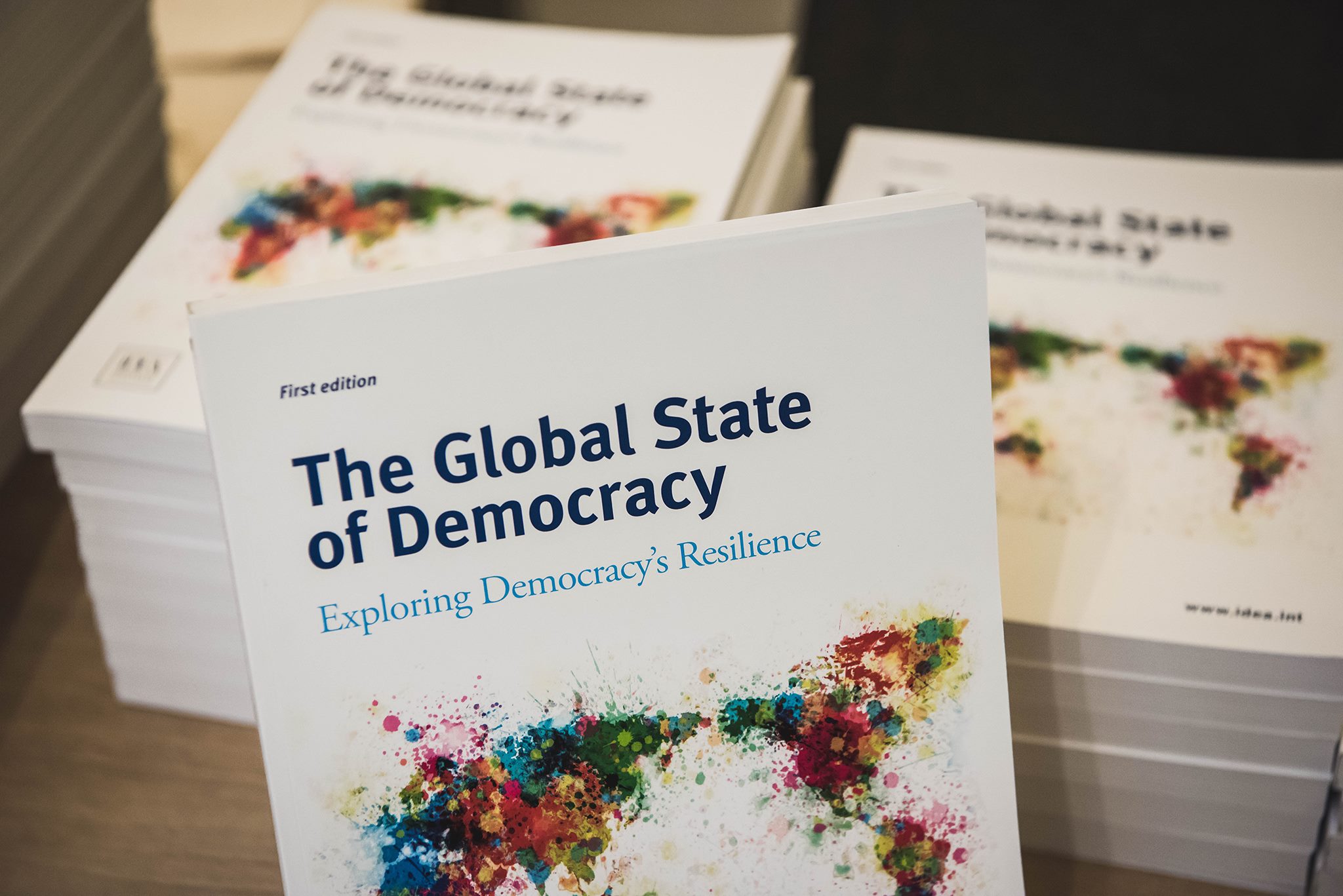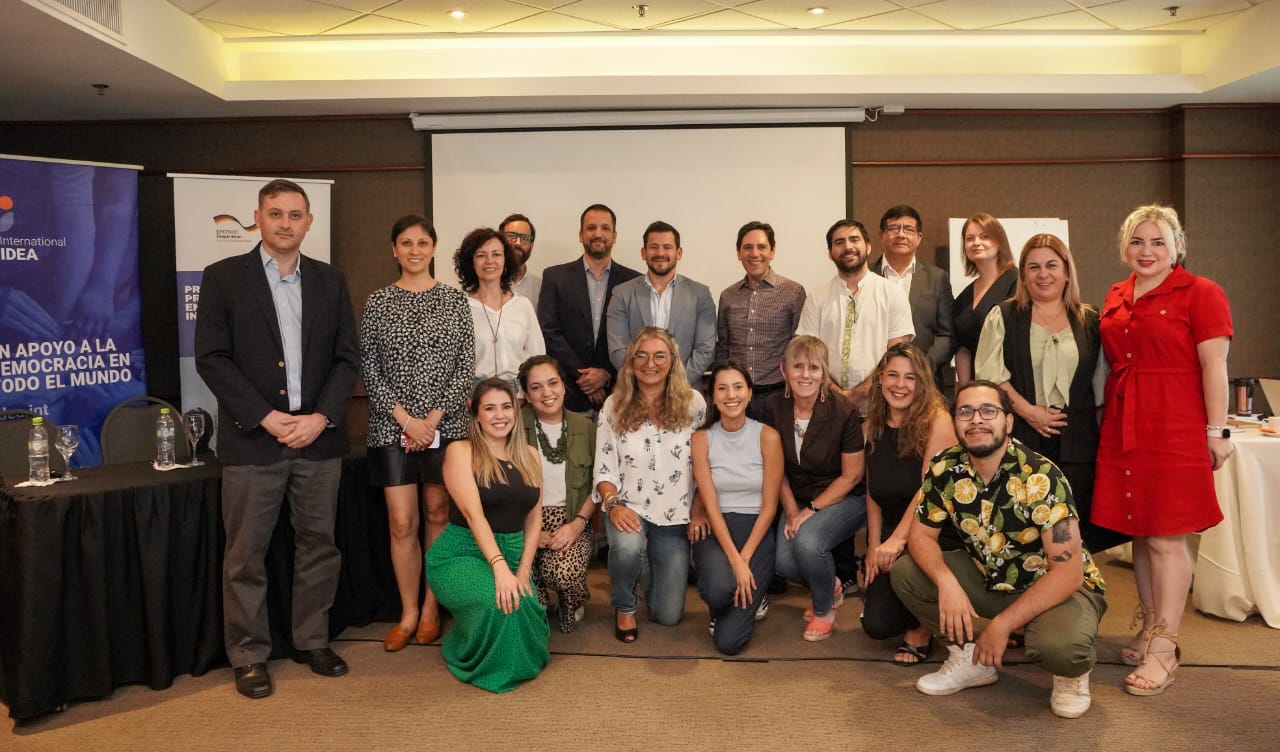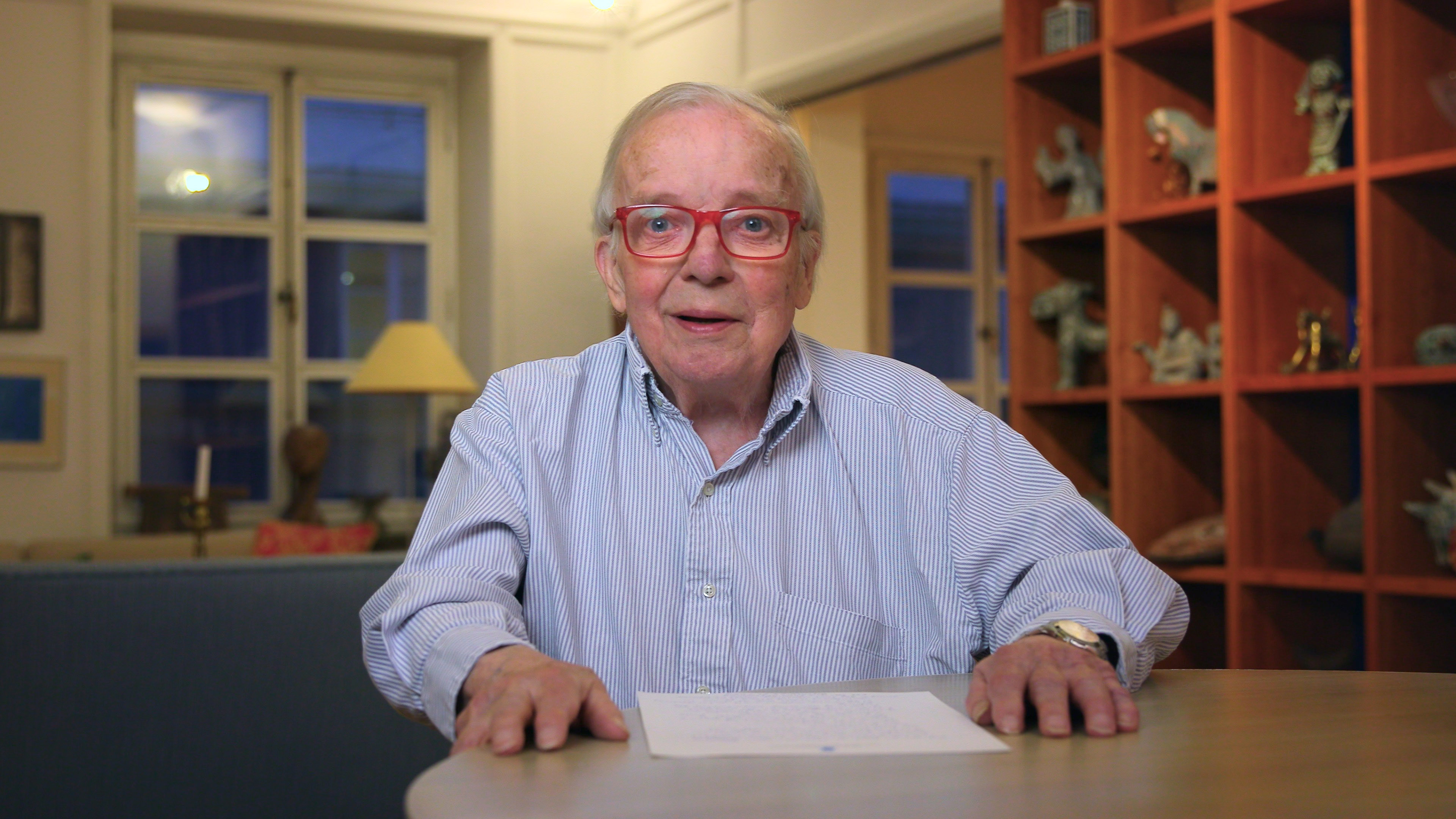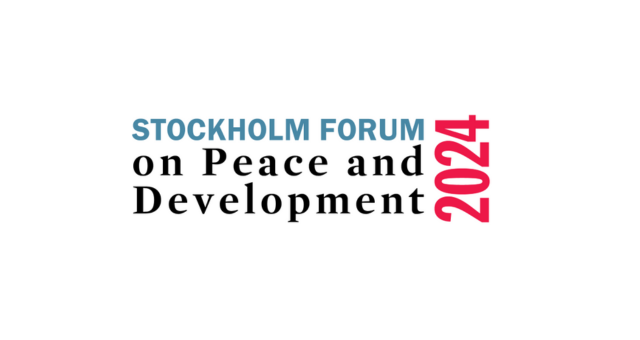Returning to the facts on The Global State of Democracy

In world of information fatigue and fake news, the need to return to the facts and engage in an evidence-based dialogue underscored the speeches made at the official launch of the The Global State of Democracy: Exploring Democracy´s Resilience publication in Stockholm on 15 November.
The publication provides an evidence-based analysis of the global state of democracy, showing that, in contrast to the often-gloomy media portrayals, democracy has made significant progress over the past 40 years. In his introductory remarks, Secretary-General of International IDEA Yves Leterme stated that recent global developments “have led many to question the value of democracy, and cynicism and pessimism seems to have overtaken the public debate”. But he said, based on the publication’s findings, that “if we take a historical perspective, democracy has proven resilient”.
Keboitse Machangana, International IDEA’s Director of Global Programme, echoed this view, explaining that given the current sentiments of democratic decline, International IDEA thought it timely to look to the data and contribute to the debate through an evidence-based lens.
Ulrika Modéer, Swedish State Secretary for the Minister of International Development Cooperation praised the publication in her presentation. “It will help us to make well-considered decisions” she said, reflecting on the importance of understanding the challenges to democracy as they evolve. In a world where facts are becoming "secondary to opinion", she said, free and independent media and a vibrant civil society are critical to safeguarding democracy.
Similarly, Margot Wallström, Swedish Minister of Foreign Affairs, described the publication as "thorough, timely and relevant". She pointed to the rise of populism and extremism in the European Union as threats to democracy, and explained that citizens are losing confidence in traditional politics and the value of democracy. Now, more than ever, Wallström said we need to work to show the benefits of a free and open society. “Democracy is not a spectator sport… and I encourage everyone in this room to join the game!” she concluded.
The event also launched the Global State of Democracy (GSoD) Indices, which underpin the publication and providesa key evidence base to inform policy interventions. Director of the Varieties of Democracy Institute and GSoD Indices expert, Svend-Erik Skaaning, emphasized the importance of turning to numbers to avoid confirmation bias and make informed decisions. “To make change, you need willingness, ability and knowledge. We provide the knowledge” he explained.
Also equipping people with the knowledge to create change is Noura Berrouba, Governing Body Member of European Youth Parliament, who spoke about the issues of low youth participation in politics. Berrouba said "civic participation must be taught from an early age". Young people need the knowledge and tools to engage in politics and this is essential for a thriving democracy in the long term, she explained.
Jan Eliasson, former Deputy Secretary-General of the United Nations, offered closing remarks. He applauded the publication for providing an evidence base for safeguarding democracy. He also warned of the “hysterical pace of information” in a technology-driven world, and the impact this is having on society’s expectations of policymakers. Instead, he urged that we “go back to evidence-based facts, and accept a slower, contemplative process of coming to solutions for society”.
The event was held at the Stockholm City Conference Centre and was the first of a series of launches in locations around the world (see all upcoming events). Participants also watched a series of short documentaries related to the publication and took part in thematic innovation labs (IDEAthons), where they formulated solutions to current challenges to democracy. In the spirit of democracy, they then voted on their favourite solutions, all of which will be published on our website.


